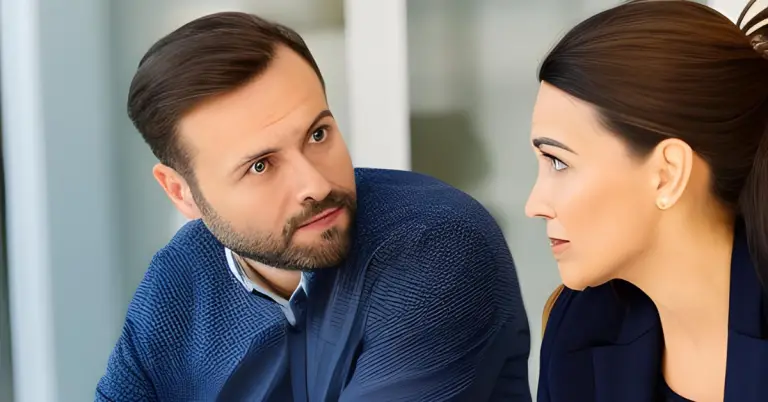The 5 Main Relationship Stages
Relationships are an important part of human life. They offer a sense of belonging and companionship that is essential for our physical, emotional, and mental well-being. However, relationships go through various stages as they progress, and understanding these stages is crucial in building healthy and lasting connections with our loved ones. In this article, we will explore the different stages of a relationship and their significance.
The 5 Main Stages In A Relationship
Stage 1: The Attraction Stage
This is the first stage of any relationship, and it is characterized by physical attraction and infatuation. At this stage, people are usually drawn to each other’s physical appearance, personality traits, or social status. They may experience a rush of euphoria and excitement when they are around each other, and they may spend a lot of time trying to get to know each other better.
During this stage, people tend to overlook their partner’s flaws and focus on their positive attributes. They may also engage in activities that are geared towards impressing their partner, such as dressing up nicely or taking them on romantic dates.
Stage 2: The Getting to Know You Stage
Once the initial attraction has been established, the next stage involves getting to know each other on a deeper level. This involves learning about each other’s interests, values, and beliefs. It is a crucial stage in any relationship, as it lays the foundation for a lasting connection.
At this stage, couples may engage in activities that enable them to spend more time together and share their experiences. This may involve going on trips, attending events, or simply spending time alone together. Communication is key during this stage, as it enables partners to learn more about each other and establish a sense of trust and respect.
Stage 3: The Stability Stage
Once partners have established a deeper connection and have learned more about each other, they may enter the stability stage. This is the stage where the relationship becomes more serious and committed, and the focus shifts from physical attraction to emotional intimacy.
During this stage, couples may make a conscious decision to commit to each other and become exclusive. They may also start talking about their future plans and goals, such as getting married or starting a family. Communication continues to play a crucial role in this stage, as it enables couples to navigate any challenges that may arise and strengthen their bond.
Stage 4: The Challenge Stage
Despite the stability that may have been established, relationships are not always smooth sailing. At some point, partners may face challenges that test the strength of their connection. This may involve issues such as infidelity, financial difficulties, or differences in values and beliefs.
During this stage, partners may experience feelings of hurt, anger, or disappointment. However, if they are committed to the relationship, they may work together to overcome these challenges and emerge stronger than before.
Stage 5: The Commitment Stage
The commitment stage is the final stage of a relationship. At this point, partners have been through the ups and downs of the relationship and have emerged with a deeper sense of understanding and appreciation for each other. They have built a strong emotional bond and are committed to each other for the long term.
During this stage, couples may make a formal commitment to each other, such as getting engaged or married. They may also start to build a life together, such as buying a home or starting a family. Communication remains a crucial aspect of this stage, as partners continue to navigate the challenges that come with building a life together.
Is There Another Stage After The Commitment Stage?
While the commitment stage is often considered the final stage of a relationship, it does not necessarily mean that the relationship stops evolving. Relationships are dynamic and continue to change over time, even after a formal commitment has been made.
After the commitment stage, couples may enter into a phase of maintaining and strengthening their bond. This involves continuing to work on communication, resolving conflicts, and supporting each other’s goals and aspirations. Couples may also experience new challenges as they navigate their lives together, such as changes in careers, health issues, or parenting.
In addition, some couples may decide to renew or reaffirm their commitment to each other through ceremonies or rituals such as renewing wedding vows, taking a second honeymoon, or celebrating a significant anniversary.
Ultimately, while the commitment stage may mark a significant milestone in a relationship, it does not mean that the relationship stops evolving or that there are no more opportunities for growth and connection. Couples who continue to prioritize their relationship and work on maintaining their connection can continue to deepen their bond and experience new levels of intimacy and closeness.
Do All Relationships Go Through These Stages?
It is important to note that not all relationships go through these stages in the same way, or in the same order. Each relationship is unique and may have its own set of challenges and successes. Some relationships may progress quickly through the stages, while others may take longer to reach certain milestones.
Additionally, some relationships may not go through all of these stages, or they may go through them in a different order. For example, some couples may become committed to each other before they have fully gotten to know each other on a deeper level.
It is also important to note that not all relationships are meant to last for the long term. Some relationships may end before they reach the commitment stage, and that is okay. The most important thing is to be honest and communicate openly with your partner throughout the relationship, regardless of what stage you are in.
In summary, while these stages can be helpful in understanding the general progression of relationships, it is important to recognize that each relationship is unique and may not follow the same pattern as others.
Tips For Making The Stages Work For You
Here are some tips for making these stages work:
- Build a foundation of trust and communication: Trust and communication are crucial to building a healthy relationship. Make sure to be honest and open with your partner from the beginning and work on building a strong foundation of trust and understanding.
- Take the time to get to know each other: Spend time getting to know your partner on a deeper level. This involves not only sharing your interests and hobbies but also your fears, values, and beliefs.
- Be patient: Relationships take time to develop and progress through the stages. It is important to be patient and not rush the process. Give each stage the time it needs to fully develop and don’t try to force things.
- Maintain your independence: While it is important to build a strong connection with your partner, it is also important to maintain your own individuality. This means having your own interests, hobbies, and goals outside of the relationship.
- Practice forgiveness and understanding: No relationship is perfect and there will be challenges and conflicts along the way. Practice forgiveness and compassion when conflicts arise and work on finding a resolution that works for both of you.
- Keep the romance alive: Even after the commitment stage, it is important to keep the romance alive in your relationship. This means continuing to show love and affection towards your partner, going on dates, and finding ways to surprise and delight each other.
- Communicate openly and regularly: Communication is key to a healthy and successful relationship. Make sure to communicate openly and regularly with your partner, expressing your needs and desires while also listening and being receptive to their needs and desires.
By following these tips, couples can build a strong and healthy relationship that continues to grow and evolve over time.
To Conclude
In conclusion, relationships are complex and dynamic and progress through a series of stages as couples build and strengthen their bond. Each stage presents its own unique challenges and opportunities for growth, and it is important to be patient, communicate openly, and work together to build a healthy and strong relationship.
While each relationship is unique and may progress through the stages at different paces, the stages of attraction, exploration, commitment, and maintenance are commonly recognized as key milestones in a relationship’s evolution. It is important for couples to be flexible and adaptable, and to work together to overcome any challenges that arise.
By following tips such as building a foundation of trust and communication, maintaining independence, and keeping the romance alive, couples can navigate each stage of their relationship with greater ease and build a lasting and fulfilling bond. Ultimately, with patience, dedication, and open communication, couples can experience the joy and fulfillment of a healthy and thriving relationship.
Frequently Asked Questions
How long does it typically take to go through each stage of a relationship?
The length of time it takes to go through each stage of a relationship varies from couple to couple. Some couples may progress through each stage quickly, while others may take longer to fully develop their relationship. It is important to take the time needed to fully develop and grow in each stage, without rushing the process.
What should I do if my partner and I are progressing through the stages at different paces?
If you and your partner are progressing through the stages at different paces, it is important to communicate openly and honestly with each other. Express your concerns and work together to find a pace that works for both of you. Remember, relationships are a partnership and it is important to work together to build a strong and healthy bond.
Can a relationship skip a stage or go backwards?
Yes, relationships can skip a stage or even go backwards in the progression of stages. Each relationship is unique and may not follow the same pattern as others. It is important to be flexible and adaptable and to communicate openly with your partner throughout the relationship, regardless of what stage you are in.
How do I know if my partner and I are ready for the commitment stage?
There is no set timeline for when a couple is ready for the commitment stage. However, some signs that a couple may be ready include feeling a deep sense of connection and trust, sharing similar values and goals, and being able to communicate openly and honestly with each other. Ultimately, it is up to each individual couple to determine if and when they are ready for a formal commitment.
What can I do if my relationship is stuck in a certain stage?
If your relationship is stuck in a certain stage, it may be helpful to take a step back and evaluate what is holding you back. Are there any underlying issues that need to be addressed? Are there communication barriers that need to be overcome? Consider seeking the support of a counselor or therapist who can help you work through any challenges and move forward in your relationship.








